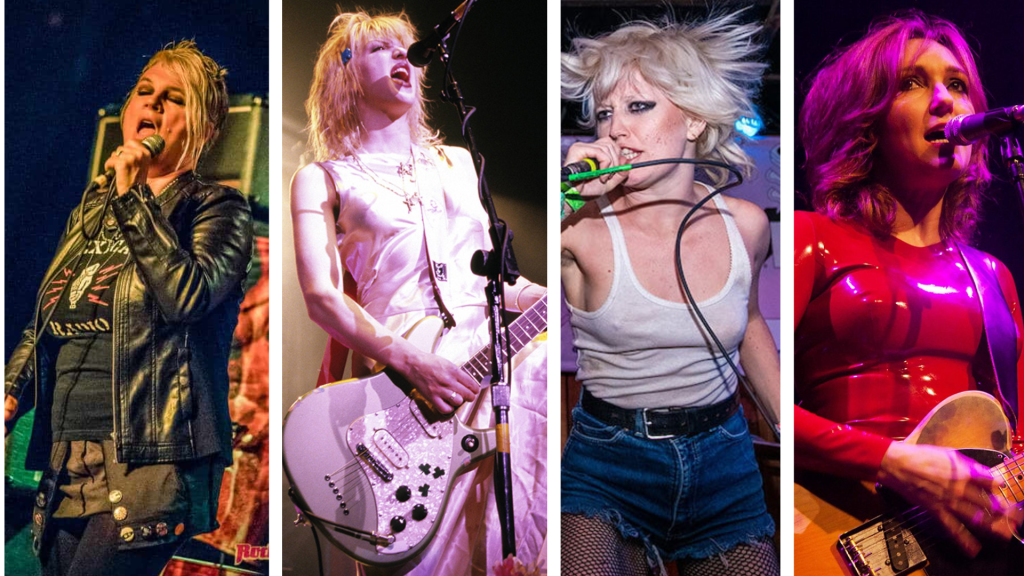Let’s shatter a myth right now: punk was never a boys’ club. While history books often focus on the Ramones and Sex Pistols, women have been at the heart of punk since its inception, screaming, shredding, and smashing boundaries with every chord.
These weren’t just backup singers or pretty faces in the crowd. They were the ones wielding guitars like weapons, spitting lyrics that cut through societal BS, and creating spaces where rebellion had no gender.
Punk women didn’t just break the rules; they torched the rulebook entirely and wrote their own manifesto in lipstick and leather.
Turn up your speakers and prepare to meet the women who proved punk’s power was always feminine.
1. Patti Smith

Before punk had a name, Patti Smith was already living it. She was called the Godmother of Punk. This poet-turned-rocker didn’t just stumble into punk; she helped invent it, making grimy CBGB stages into sacred spaces where literature met raw power.
Her 1975 debut, Horses, didn’t just launch a career; it launched a revolution that proved punk could be as intellectual as it was visceral.
- Background & Band: Born in Chicago, raised in New Jersey, moved to NYC in the early 1970s; formed the Patti Smith Group in 1974
- Musical Style: Fused beat poetry with punk rock, pioneering a literary punk sound with stream-of-consciousness vocals and raw guitar feedback
- Essential Tracks: Gloria, Because the Night, Dancing Barefoot, People Have the Power
- Key Album: Horses (1975), widely regarded as one of the foundational albums of punk rock
- Cultural Impact: Redefined punk as a vehicle for literary, spiritual, and political expression; her androgynous style championed artistic originality
- Current Status: Still performing at age 78; Rock and Roll Hall of Fame inductee; continues to inspire and mentor emerging artists
2. Poly Styrene
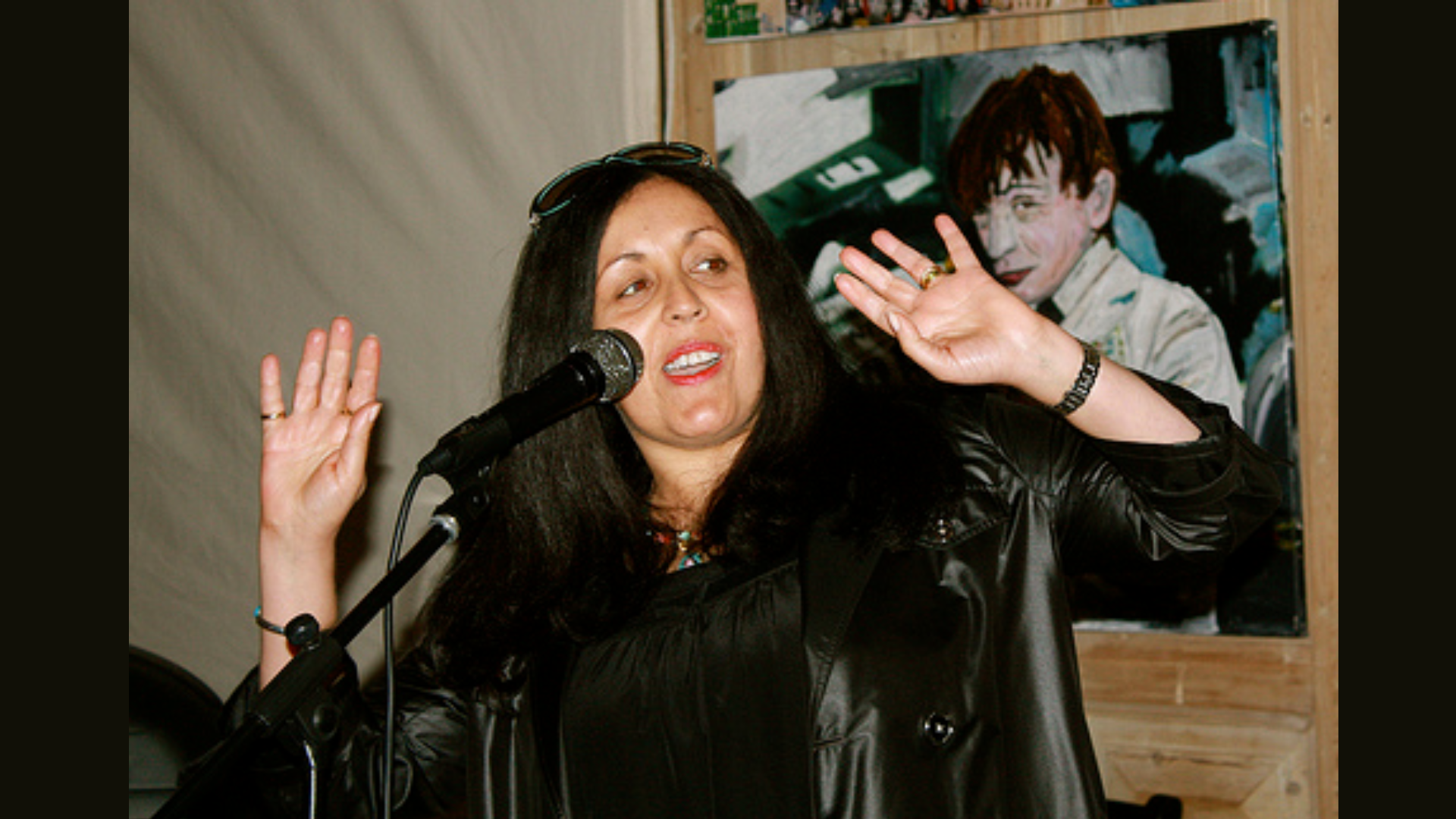
With her neon braces, Day-Glo outfits, and saxophone-driven punk anthems, Poly Styrene was one of punk’s most colorful revolutionaries.
She didn’t just challenge Punk’s look. She challenged everything, from consumer culture to racial stereotypes, all while creating some of the catchiest anti-establishment songs ever recorded.
- Background & Band: Born Marianne Joan Elliott-Said in London to a Somali mother and British father; formed X-Ray Spex in 1976 after attending a Sex Pistols show
- Musical Style: Blended punk energy with saxophone hooks and reggae rhythms; vocals shifted from melodic sweetness to fierce, snarling delivery
- Essential Tracks: Oh Bondage Up Yours!, Identity, The Day the World Turned Day-Glo,
Art-I-Ficial - Key Album: Germfree Adolescents (1978) – a punk milestone critiquing consumerism and conformity
- Cultural Impact: One of the few Black women in punk’s early scene; voiced sharp anti-consumerist and feminist critiques well ahead of their time
- Lasting Impact: Died in 2011; remains an icon for artists using punk to address social justice, race, and gender issues
3. Siouxsie Sioux
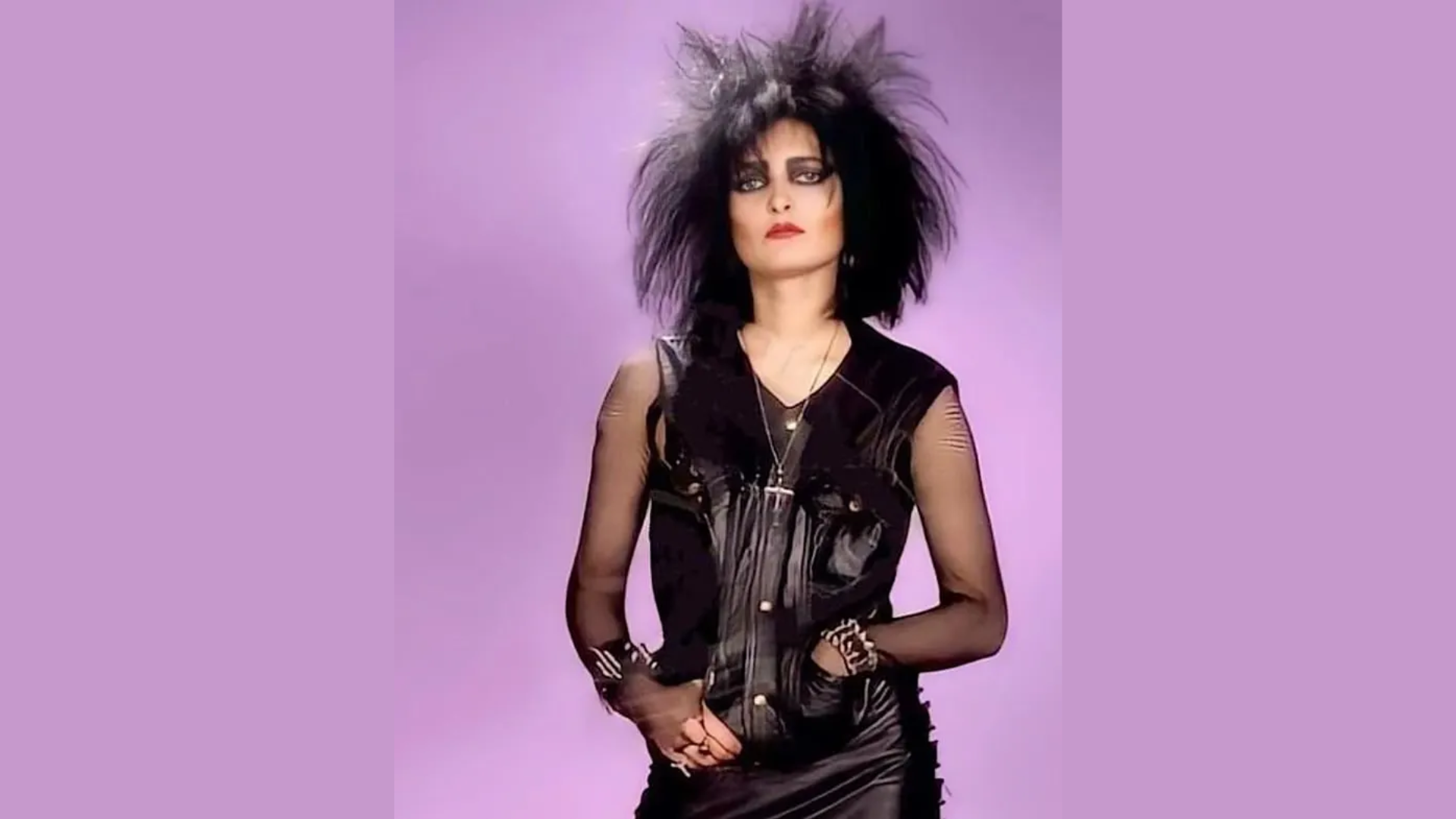
Siouxsie Sioux changed punk’s raw aggression into something darkly theatrical and utterly mesmerizing.
With her eye makeup and commanding stage presence, she didn’t just perform punk, she turned it into high art, creating the blueprint for goth rock while keeping punk’s subversive edge razor-sharp.
- Background & Band: Born Susan Janet Ballion in London; formed Siouxsie and the Banshees in 1976 after an impromptu Sex Pistols cover performance
- Musical Style: Changed punk into theatrical post-punk and goth, blending art rock, tribal rhythms, and global influences; vocals spanned from eerie whispers to piercing screams
- Essential Tracks: Spellbound, Cities in Dust, Hong Kong Garden, Christine
- Key Albums: The Scream (1978), Juju (1981), landmark records in the evolution of goth and post-punk
- Cultural Impact: Defined the visual and sonic aesthetics of goth; brought elegance and mystique to punk’s rebellious ethos
- Lasting Impact: Continues to shape fashion, makeup, and performance art; credited as a significant impact by artists from Madonna to modern alt and indie musicians
4. Kathleen Hanna

Girls to the front! That battle cry, shouted from stages across America, captures Kathleen Hanna’s seismic impact on punk culture.
She didn’t just start a band; she started a movement that completely changed punk shows from male-dominated spaces into feminist battlegrounds where young women could scream their truth.
- Background & Band: Born in Portland, Oregon; formed Bikini Kill in Olympia, Washington in 1990; emerged as the most recognizable figure of the riot grrrl movement
- Musical Style: Blended raw punk intensity with uncompromising feminist themes; confrontational vocals paired with a minimalist, aggressive sound
- Essential Tracks: Rebel Girl, Double Dare Ya, Suck My Left One, White Boy
- Key Release: The Singles – a defining compilation of their riot grrrl sound
- Cultural Impact: Turned punk shows into safe, empowering spaces for women; her zines, especially Bikini Kill, became foundational feminist texts
- Continued Influence: Sparked a wave of feminist punk bands; later expanded her activism and artistry with the electro-punk group Le Tigre
5. Debbie Harry

Debbie Harry proved punk could conquer the world without selling its soul.
As Blondie’s platinum-blonde frontwoman, she blended punk attitude with pop hooks, disco beats, and new wave creativity, creating hits that dominated both underground clubs and mainstream radio.
- Background & Band: Born Angela Trimble in Miami; formed Blondie with Chris Stein in NYC in 1974; became regulars at CBGB before breaking into the mainstream
- Musical Style: Fused punk edge with pop, disco, and new wave; her adaptable vocals ranged from punk growls to early rap delivery
- Essential Tracks: Heart of Glass, Call Me, The Tide Is High, Rapture
- Key Albums: Parallel Lines (1978), Eat to the Beat (1979) – critical to Blondie’s genre-defying success
- Cultural Impact: Demonstrated that punk could be commercially viable; her unapologetic, sensual image inspired generations of female performers
- Historical Importance: Pioneered punk-pop crossover; Rapture was among the first mainstream songs to feature rap, helping bridge punk and hip-hop cultures
6. Exene Cervenka
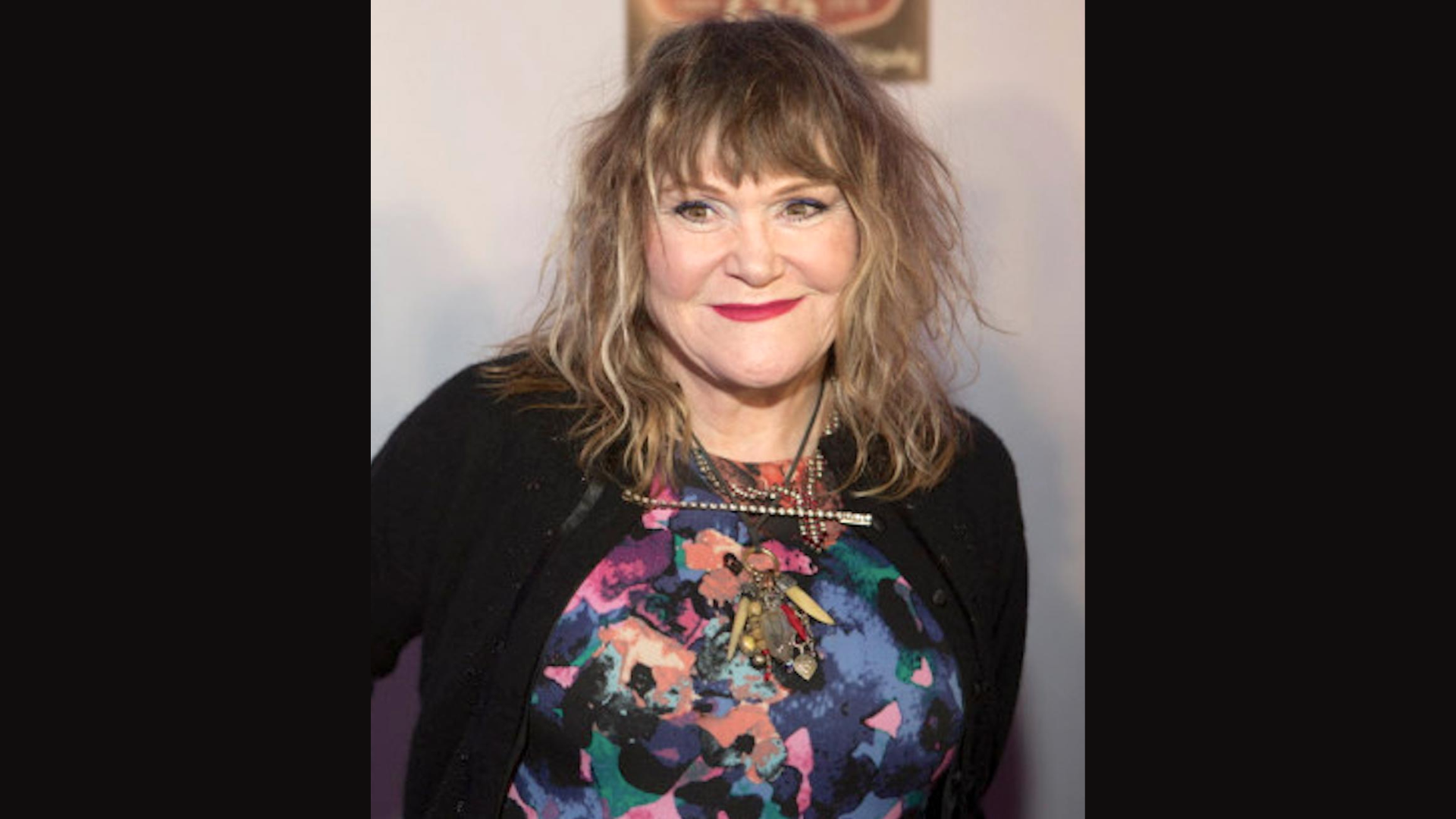
While East Coast punk grabbed headlines, Exene Cervenka was defining the West Coast sound with her band X, blending punk fury with country twang and rockabilly swagger.
Her distinctive vocal interplay with John Doe created a unique sound that proved punk could be poetic and political.
- Background & Band: Born Christene Lee Cervenka in Chicago; moved to Los Angeles and formed X in 1977 with John Doe
- Musical Style: Fused punk energy with country and rockabilly roots; known for raw, interweaving dual vocals with John Doe
- Essential Tracks: Los Angeles, White Girl, The World’s a Mess; It’s in My Kiss, Johnny Hit and Run Paulene
- Key Albums: Los Angeles (1980), Wild Gift (1981) – cornerstones of West Coast punk
- Cultural Impact: Shaped the identity of L.A. punk; lyrics dissected societal decay with lyrics and urban grit
- Artistic Range: Her work in visual art and poetry highlighted punk’s links to broader creative movements; expanded punk’s narrative possibilities
7. Alice Bag
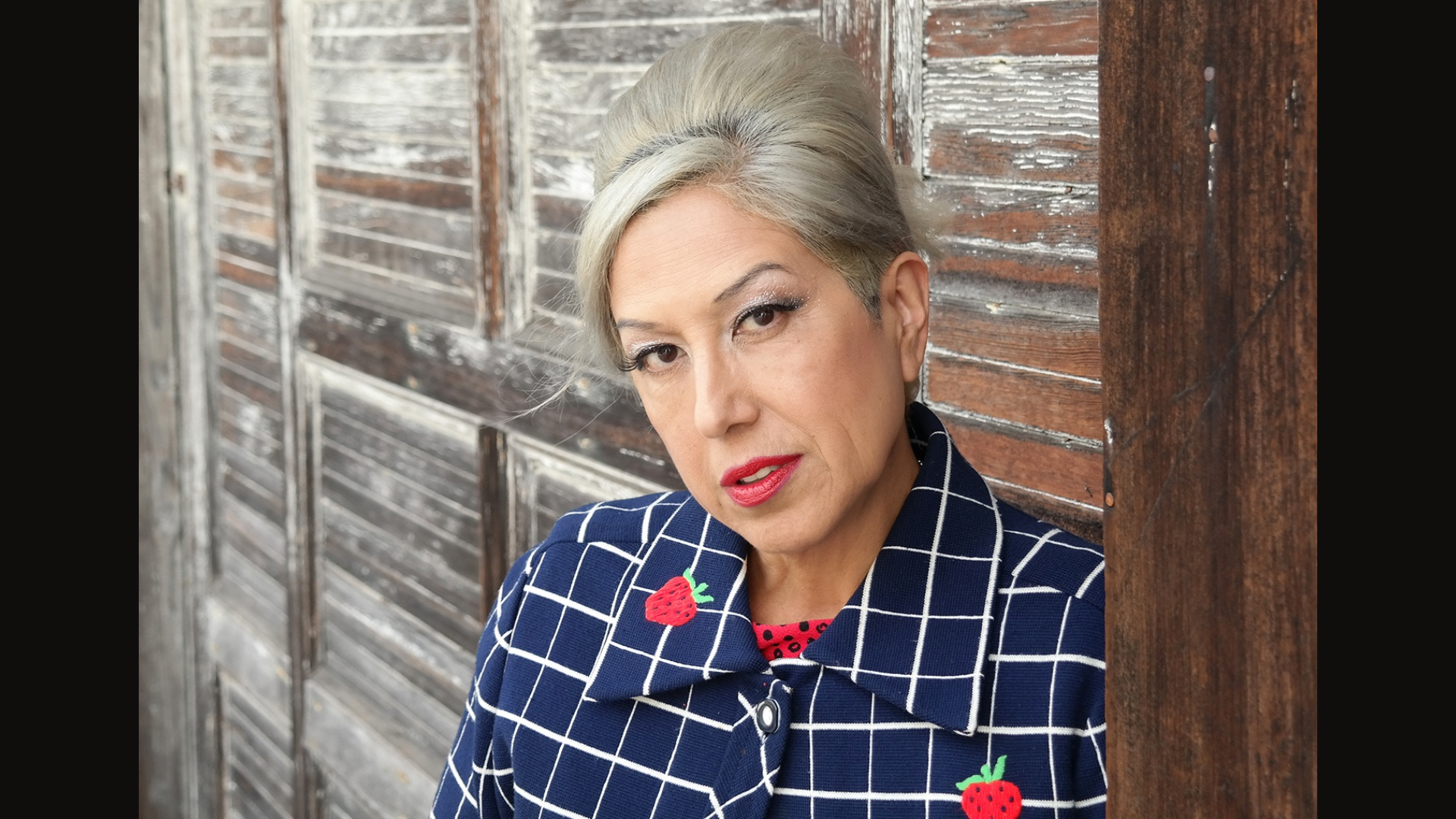
Alice Bag brought Chicana identity and fierce feminism to LA’s early punk scene, proving punk’s power was always intersectional.
Her high-spirited performances and political consciousness helped make punk more inclusive, while her later activism ensures those lessons aren’t forgotten.
- Background & Band: Born Alicia Armendariz in Los Angeles; formed The Bags in 1977 and became a central figure in L.A.’s foundational punk scene
- Musical Style: High-intensity punk infused with sharp political critique; commanding vocals delivered urgent social commentary with unfiltered energy
- Essential Tracks: Survive, Babylonian Gorgon (featured on Bag’s Cavern, 1982)
- Key Release: Self-titled EP – had the raw, politically charged essence of The Bags’ sound
- Cultural Impact: Elevated Chicana identity in punk; exposed racism and sexism in the scene through her memoir Violence Girl
- Current Role: Respected punk elder amplifying younger voices; continues to demonstrate punk’s enduring relevance as a tool for activism and equity
8. Donita Sparks
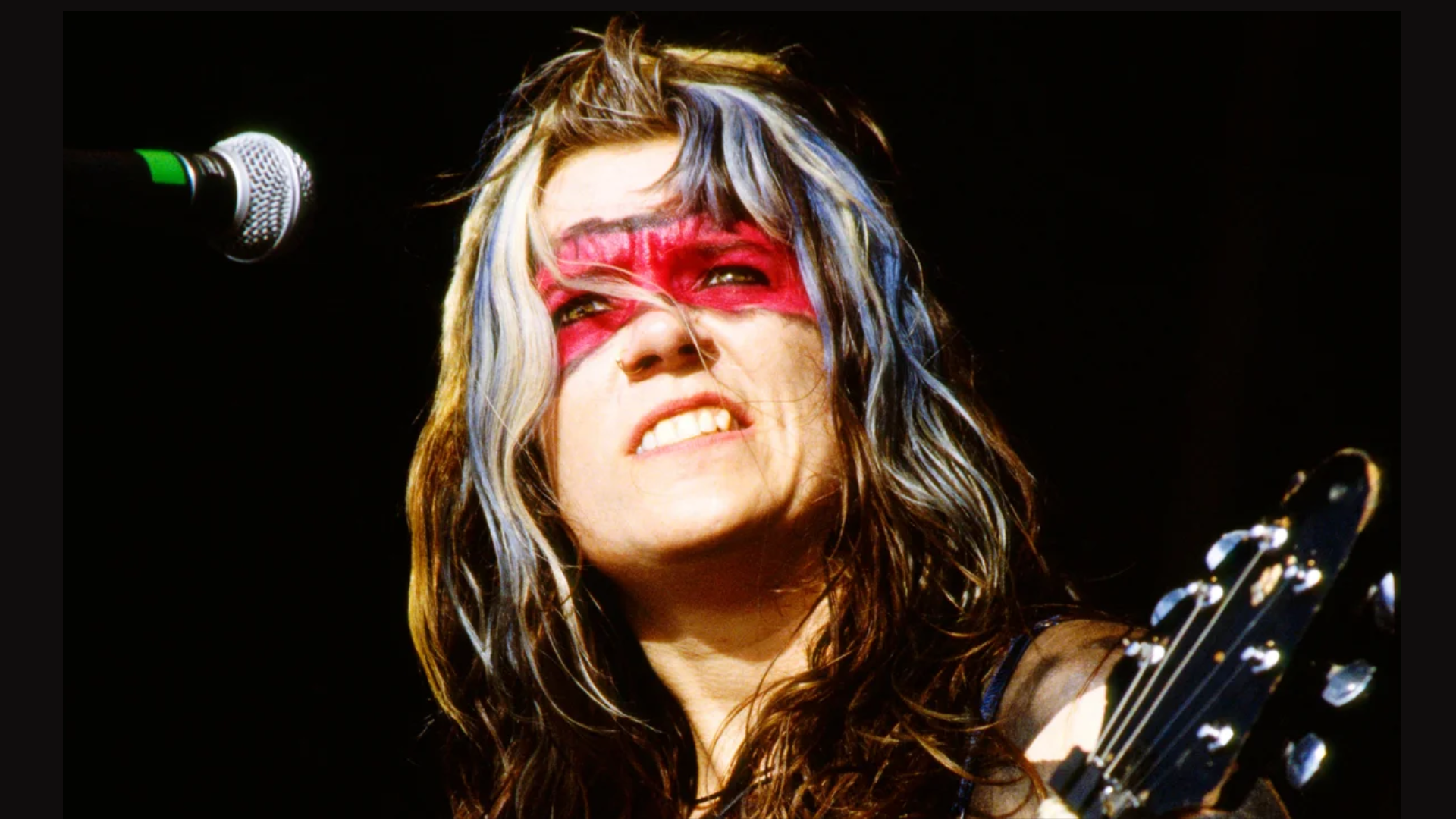
Donita Sparks took punk’s confrontational spirit to the extreme with L7, creating some of the most aggressive feminist music of the grunge era.
Her notorious stage antics and political activism proved that punk women could be as wild and uncompromising as anyone, maybe more so.
- Background & Band: Born in Chicago; formed L7 in Los Angeles in 1985; became iconic for their fierce feminist punk-metal during the grunge-dominated ’90s
- Musical Style: Fused punk aggression with heavy metal riffs and unapologetically feminist lyrics; straddled punk and metal while remaining authentic to both
- Essential Tracks: Pretend We’re Dead, Shitlist, Everglade, Andres
- Key Albums: Bricks Are Heavy (1992), Hungry for Stink (1994) – defining records of grunge-era feminist rock
- Cultural Impact: Known for incendiary, provocative performances (including tampon-throwing at Reading Festival); helped redefine female stage presence in rock
- Political Work: Co-founded Rock for Choice, using punk as a vehicle for reproductive rights advocacy; exemplified activism both onstage and off
9. Brody Dalle
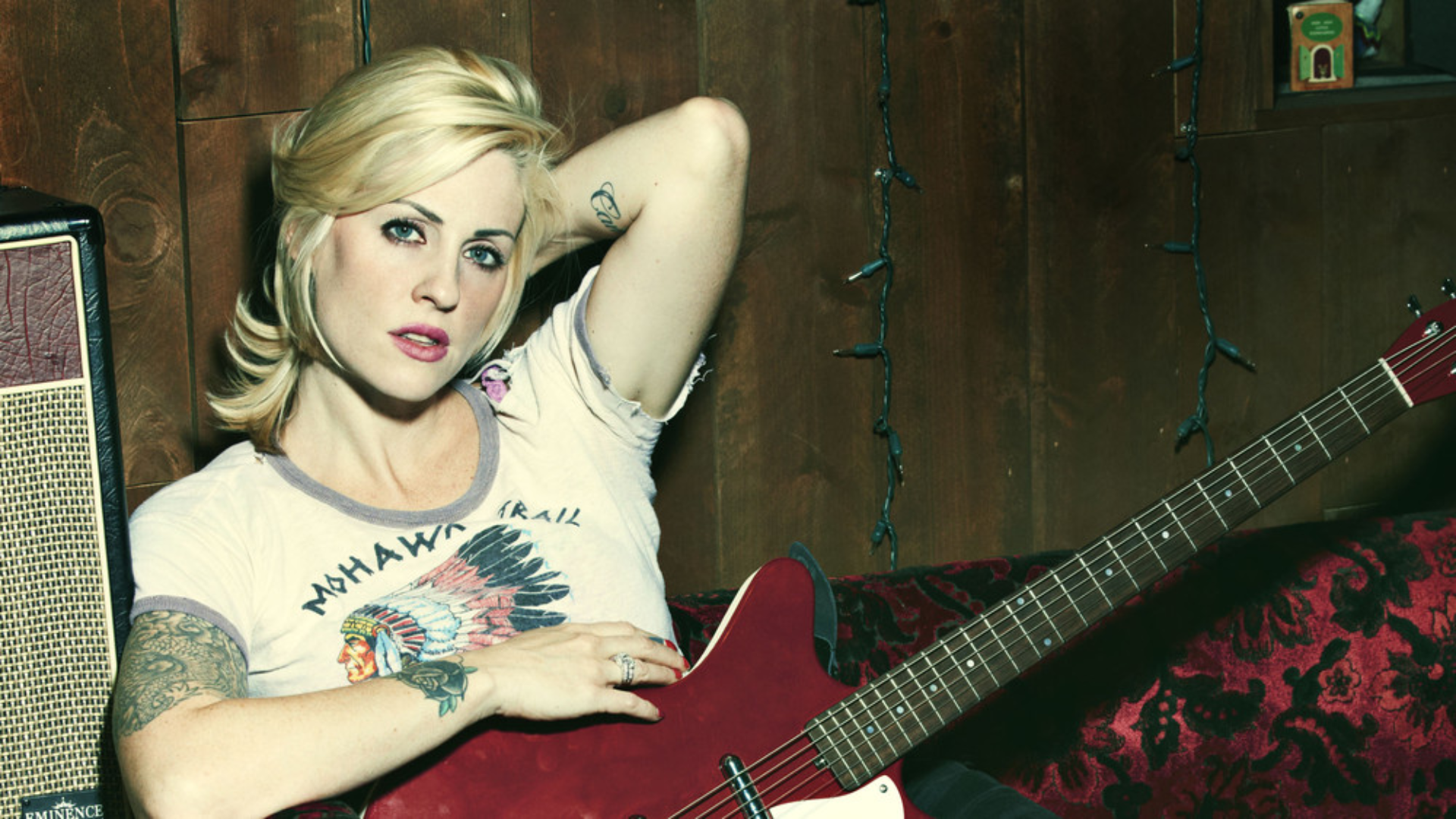
When punk needed fresh blood in the early 2000s, Brody Dalle delivered it with The Distillers.
Her raw honesty about addiction, relationships, and urban alienation proved punk could still cut in the nu-metal era, inspiring a new generation of punk women.
- Background & Band: Born Bree Joanna Alice Robinson in Australia; moved to Los Angeles and formed The Distillers in 1998
- Musical Style: Merged traditional punk ferocity with polished modern production; vocals ranged from haunting vulnerability to primal screams
- Essential Tracks: City of Angels, Drain the Blood, The Hunger, Beat Your Heart Out
- Key Albums: Sing Sing Death House (2002), Coral Fang (2003) – standout releases of early 2000s punk revival
- Cultural Impact: Reinforced punk’s originality during the nu-metal and pop-punk era; emotionally raw lyrics resonated with a new generation
- Modern impact: Paved the way for today’s female punk leaders; demonstrated that fronting a hard-edged band didn’t require sacrificing personal or artistic identity
10. Viv Albertine
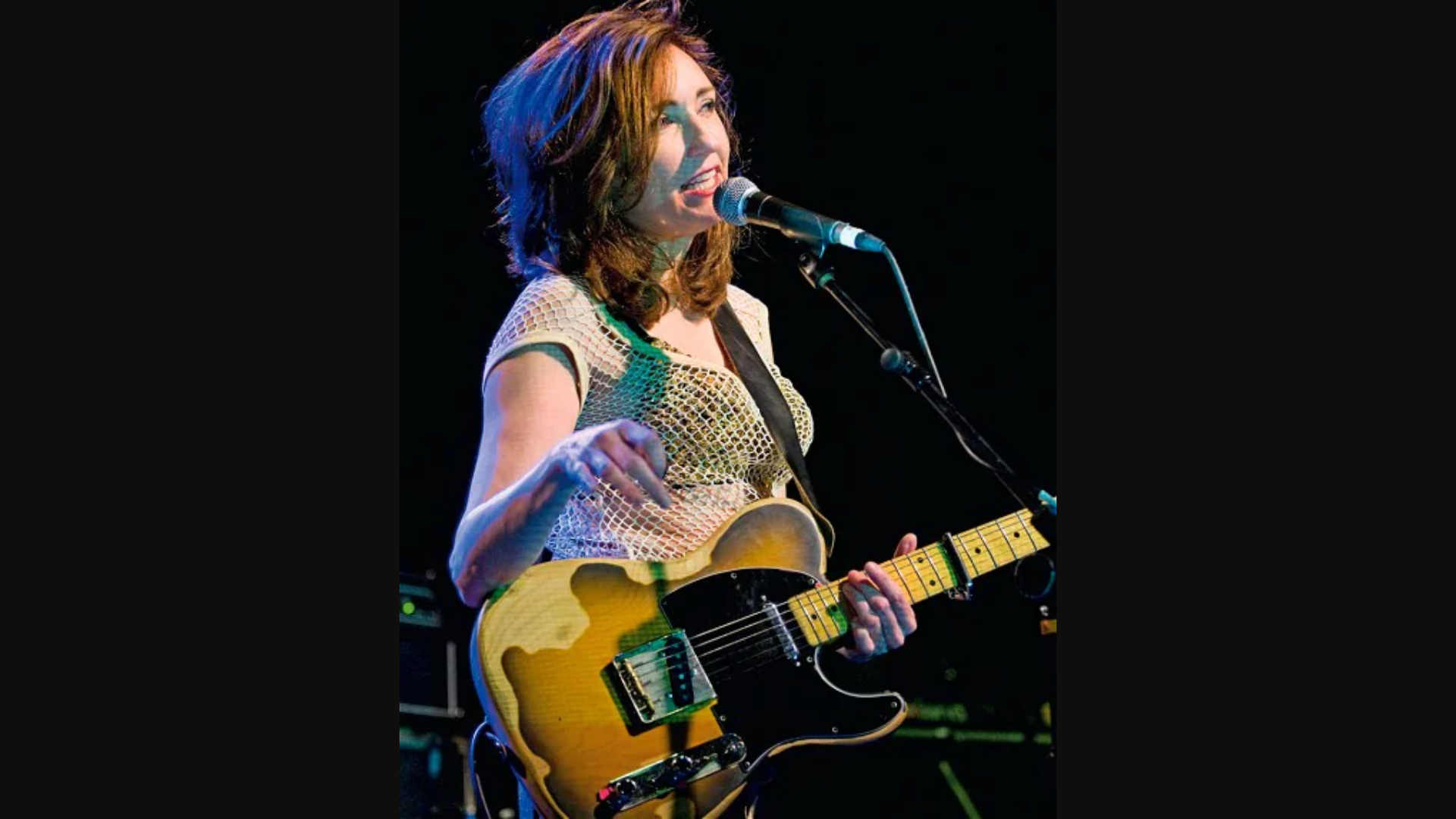
Viv Albertine’s guitar work with The Slits helped define post-punk’s experimental edge while addressing female experience with unprecedented directness.
Her angular riffs and the band’s tribal rhythms created space for discussing bodies, sexuality, and identity in ways punk had never attempted.
- Background & Band: Born Viviane Katrina Louise Albertine in London; joined The Slits as guitarist in 1977, becoming a key figure in the UK punk scene
- Musical Style: Blended punk rawness with dub reggae and tribal rhythms; her sharp, angular guitar style helped shape post-punk’s experimental edge
- Essential Tracks: Typical Girls, Shoplifting, So Tough, Love Und Romance
- Key Album: Cut (1979) – a groundbreaking post-punk album that directly found female identity and experience
- Cultural Impact: Tackled sexuality, gender roles, and female anger with radical transparency; challenged norms around femininity in music
- Literary Work: Her memoir offered a rare, candid female viewpoint on early punk; her solo music continues to engage deeply with feminist issues
11. Tobi Vail
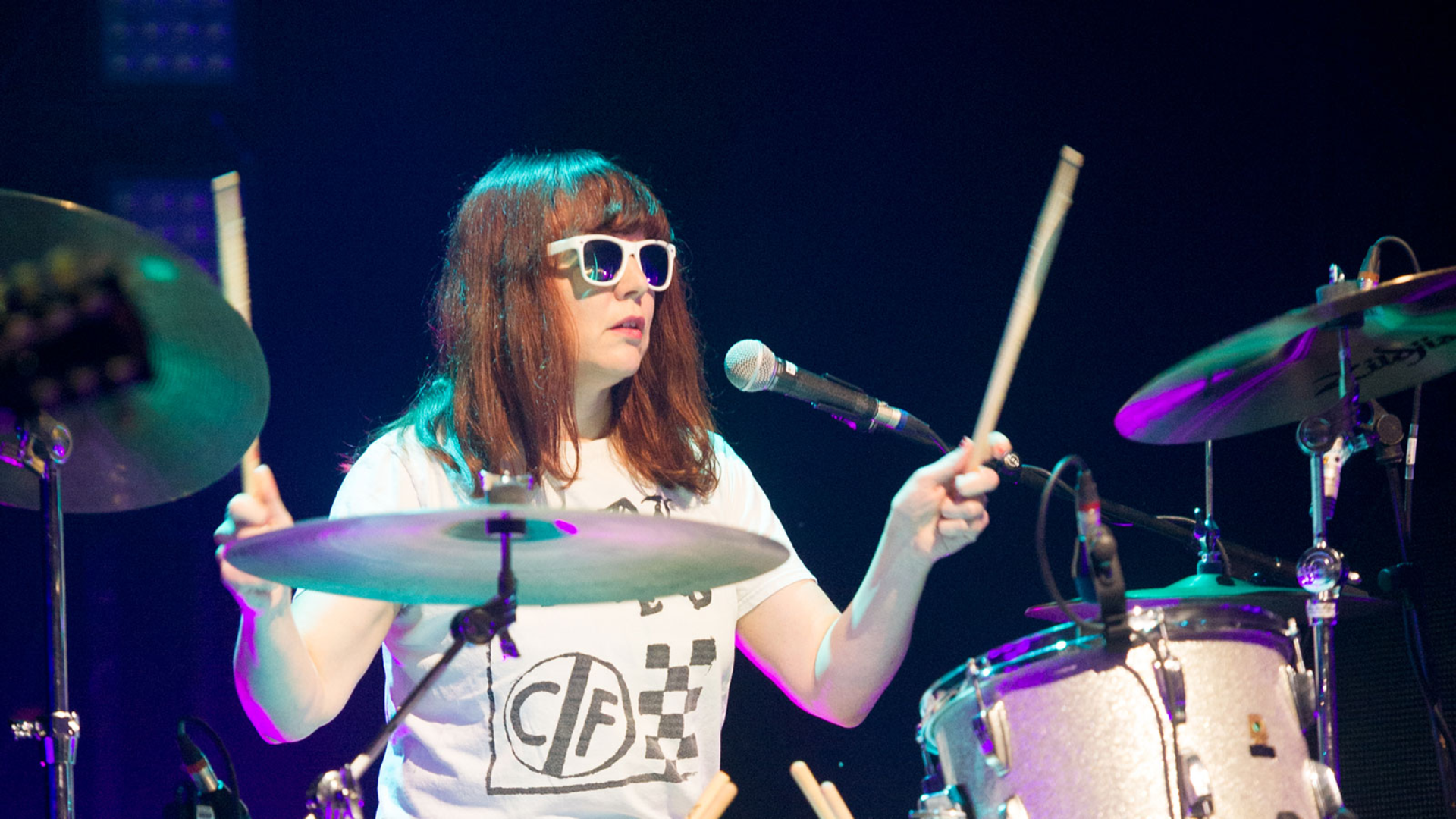
While Kathleen Hanna was riot grrrl’s most visible face, Tobi Vail was often its intellectual backbone.
Her zine Jigsaw helped define the movement’s theoretical framework, while her drumming provided the rhythmic foundation for some of punk feminism’s most powerful anthems.
- Background & Band: Born in Olympia, Washington, founding member of Bikini Kill, and a central architect of the riot grrrl movement
- Musical Style: Prioritized powerful, emotionally connecting drumming over technical precision; songwriting fused intimate narrative with sharp political critique
- Essential Tracks: Feels Blind, Carnival, Demirep – standout examples of her lyrical and rhythmic contributions to Bikini Kill
- Key Publication: Jigsaw zine – foundational riot grrrl text that helped articulate the movement’s feminist philosophy
- Cultural Impact: Served as the intellectual force behind riot grrrl; her zine writing shaped feminist conversations well beyond punk
- Ongoing Work: Remains an active feminist and cultural commentator; continues to inspire those using music as a tool for social transformation
12. Lydia Lunch
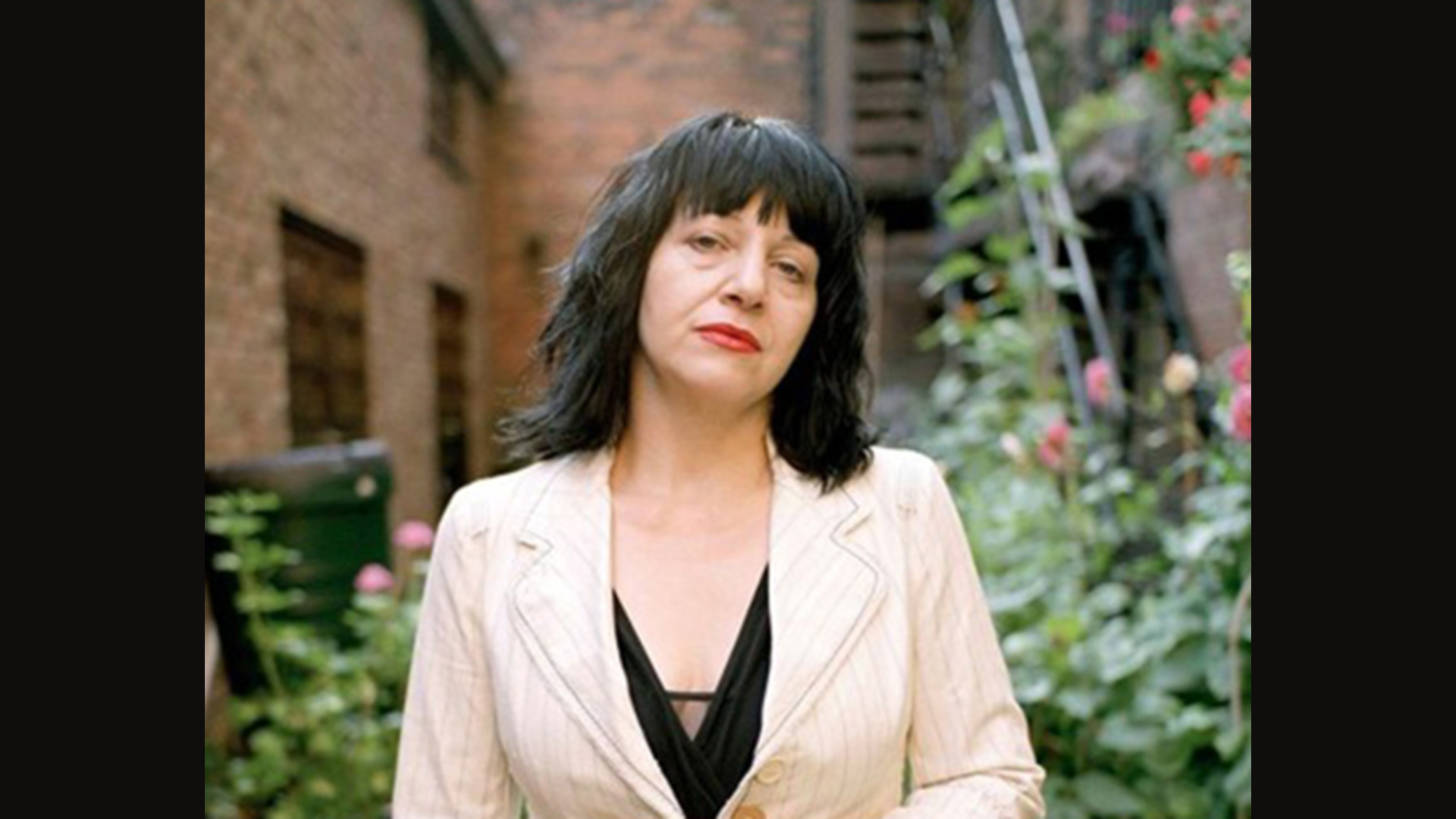
Lydia Lunch pushed punk into uncharted experimental territory with her no wave projects, creating music that was more about atmosphere and confrontation than traditional songs.
Her fearless examination of sexuality, power, and violence expanded punk’s artistic possibilities.
- Background & Band: Born Lydia Anne Koch in Rochester; moved to New York City at 16 and formed Teenage Jesus and the Jerks in 1977
- Musical Style: Embraced no wave’s abrasive minimalism, favoring mood and noise over melody or structure; blurred lines between punk and performance art
- Essential Tracks: Orphans, Lady Scarface, plus numerous collaborations with Sonic Youth and Nick Cave
- Key Release: Teenage Jesus and the Jerks’ self-titled EP – a seminal no-wave recording
- Cultural Impact: Known for confrontational stage presence and provocative lyrics; pushed punk into the realm of avant-garde expression
- Artistic Range: Pioneering force in experimental music and performance; continues to inspire through spoken word, film, and cross-genre collaborations
13. Big Joanie
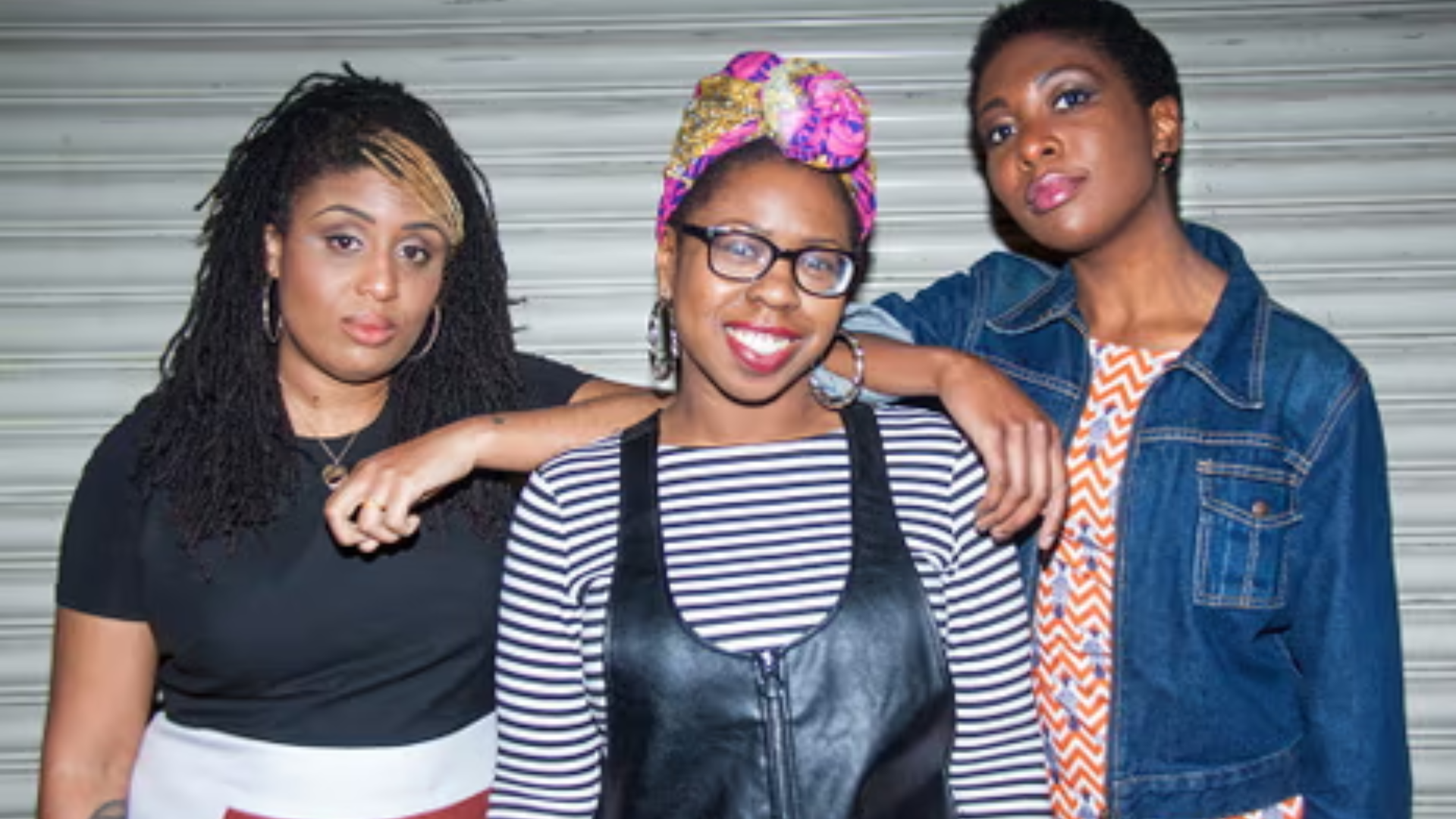
Big Joanie represents punk’s vibrant future, bringing Black feminist perspectives to the forefront of the contemporary punk revival.
Their music combines classic energy with modern intersectional politics, proving punk’s revolutionary spirit remains vital and changing.
- Background & Band: Formed in London in 2013 by Stephanie Phillips, Estella Adeyeri, and Chardine Taylor-Stone
- Musical Style: Channels classic punk energy while tackling modern issues of race, gender, and identity with clarity and urgency
- Essential Tracks: Cranes in the Sky, How Could You, It’s You
- Key Albums: Sistahs (2018), Back Home (2022) – vital contributions to contemporary punk discourse
- Cultural Impact: Center’s intersectional feminism in punk; band name nods to Some Like It Hot, blending humor with serious critique
- Contemporary Relevance: Reinforces punk’s lasting role in activism; honors its legacy while reshaping it for today’s sociopolitical climate
14. Amyl
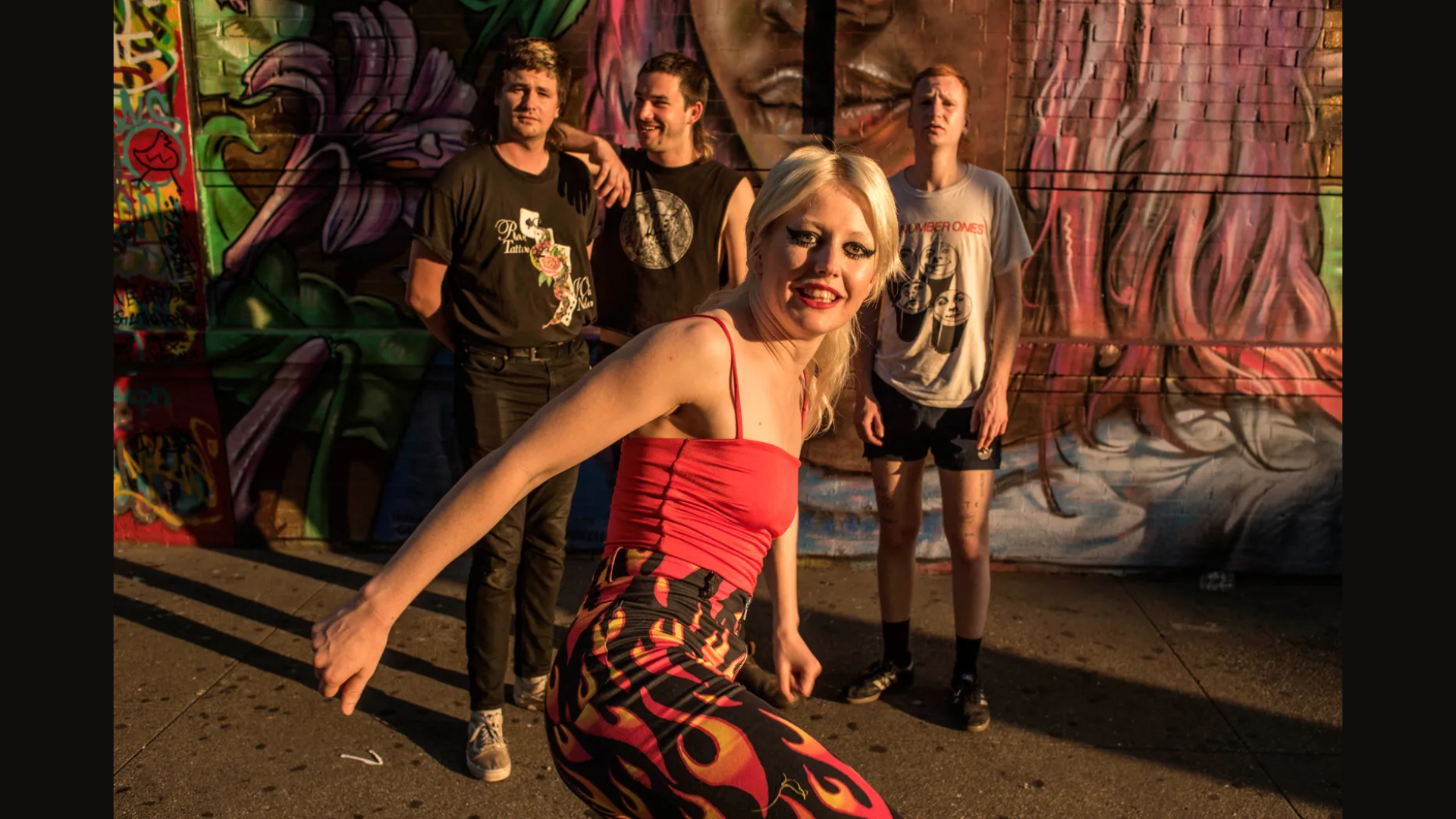
Amy Taylor channels punk’s primal energy through a distinctly modern lens, creating music that feels both timeless and urgently contemporary.
Her high-octane performances and no-bullshit attitude prove punk’s essential spirit goes beyond generational boundaries.
- Background & Band: Born in Australia; formed Amyl and the Sniffers in Melbourne in 2016, and quickly attracted global attention
- Musical Style: Channels raw punk energy with a modern twist, merging pub rock, punk, and hard rock influences
- Essential Tracks: Some Mutts (Can’t Be Muzzled), Hertz, Security
- Key Albums: Big Attraction (2019), Comfort to Me (2021) – standout records in the new wave of global punk
- Cultural Impact: Known for highly energetic live performances and magnetic presence; lyrics combine biting humor with sharp social insight
- Global Reach: International acclaim underscores punk’s global vitality; exemplifies the genre’s evolving, inclusive future
15. Penelope Houston
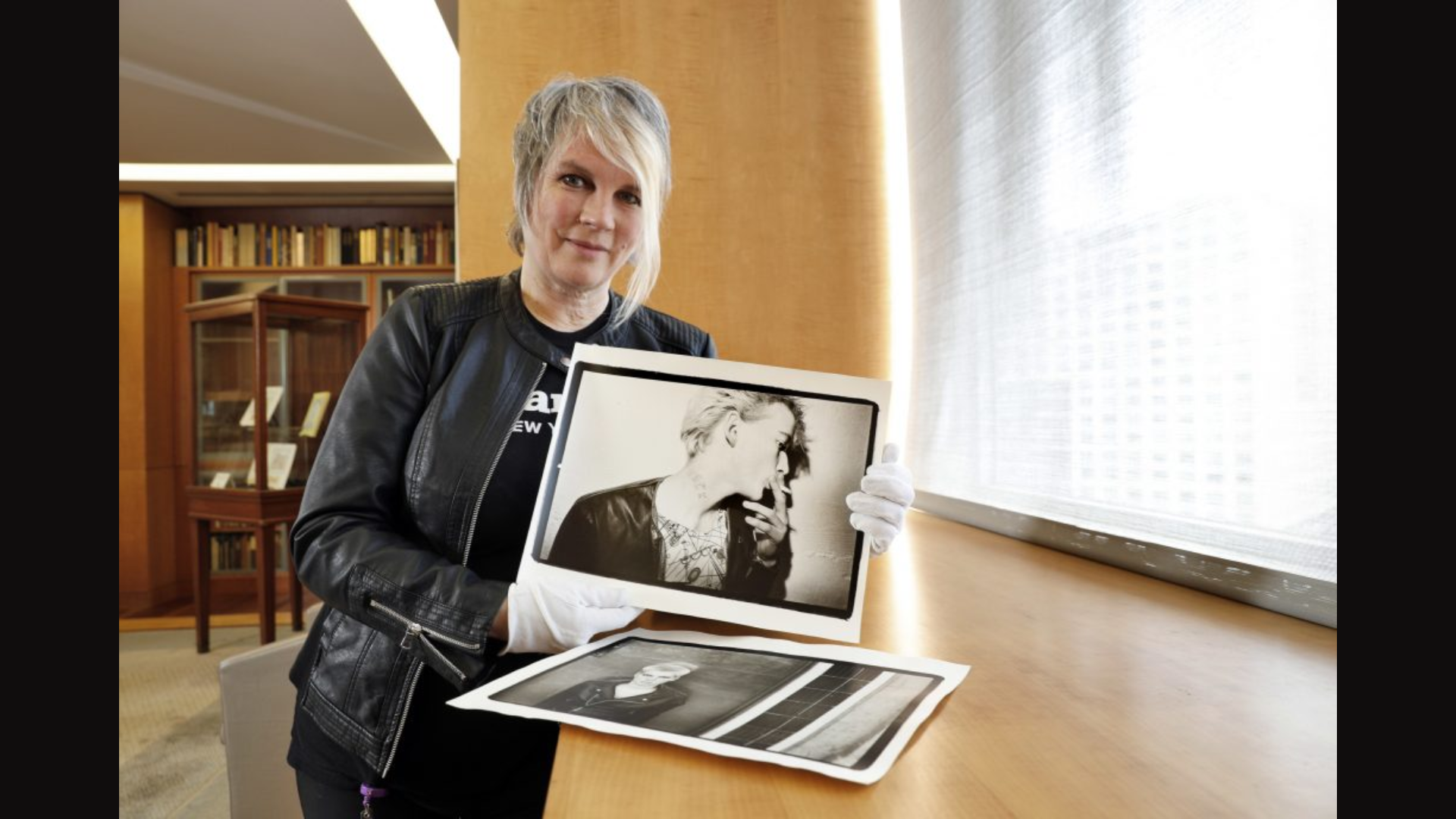
Penelope Houston helped establish San Francisco’s punk scene with The Avengers, proving punk could thrive far beyond New York and London.
Her powerful voice and political lyrics created memorable anthems that captured the alienation and energy of punk’s first wave.
- Background & Band: Born in Los Angeles; formed The Avengers in San Francisco in 1977, becoming a key figure in the first wave of American punk
- Musical Style: Merged classic punk energy with West Coast flair; delivered commanding vocals over sharp, concise instrumentation
- Essential Tracks: Car Crash, The American in Me, Corpus Christi
- Key Release: Avengers compilation (1983) – definitive collection of the band’s essential recordings
- Cultural Impact: Cemented San Francisco’s place in punk history; politically charged lyrics explored American identity and critique
- Continued Work: Remains active in both punk and folk scenes; influential to artists who use punk as a vehicle for self-reflection and activism
The Beat Goes On
These women didn’t just participate in punk; they shaped it, challenged it, and ultimately made it into something bigger than anyone initially imagined.
From Patti Smith’s poetic rebellion to Big Joanie’s contemporary activism, they have proven that punk’s power was never about gender—it was about the courage to be loud, honest, and uncompromisingly oneself.
Punk isn’t dead—it never was. And it was never just male. These women’s voices still ring out, loud and clear, in every punk song that dares to challenge the status quo.


